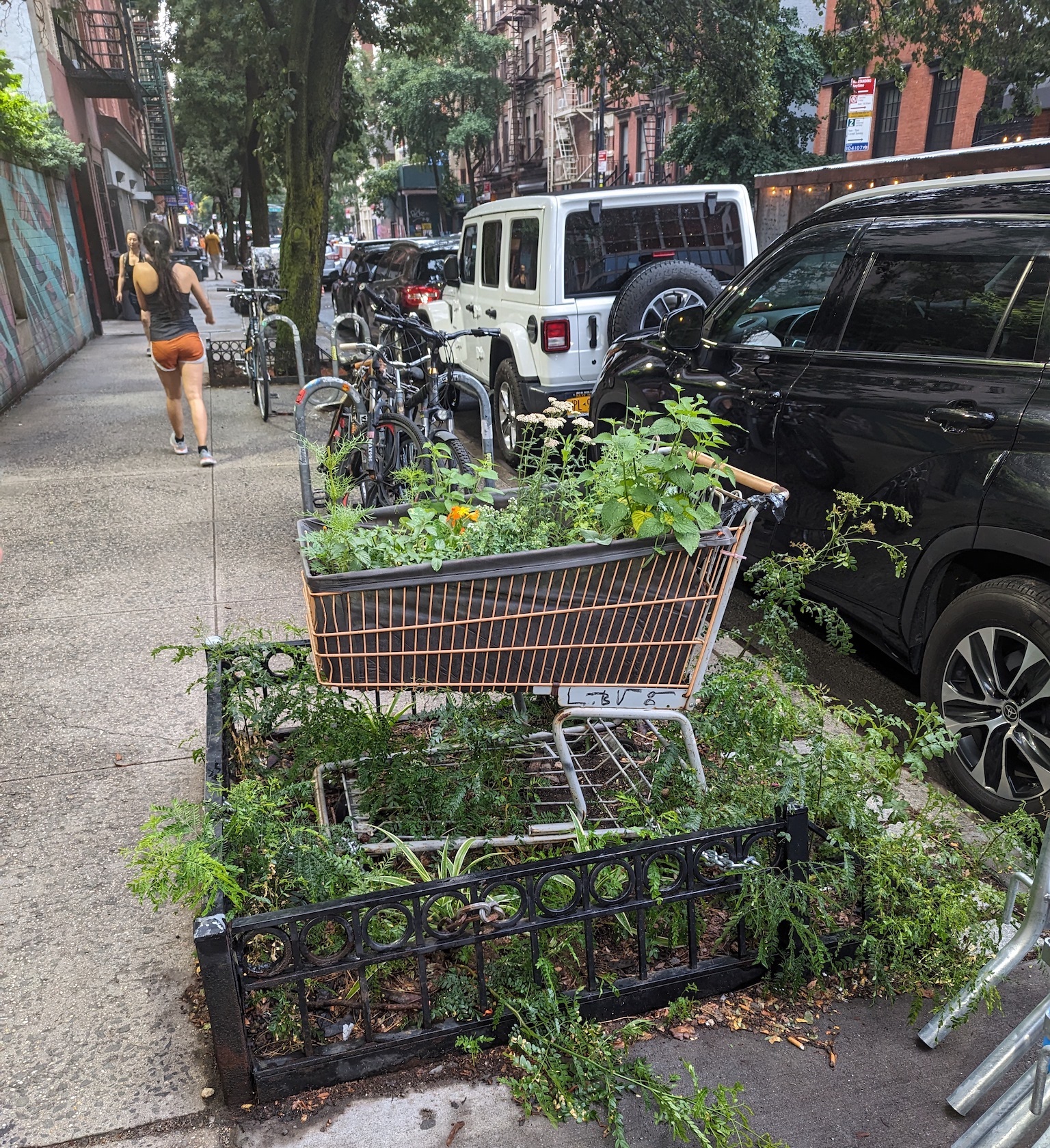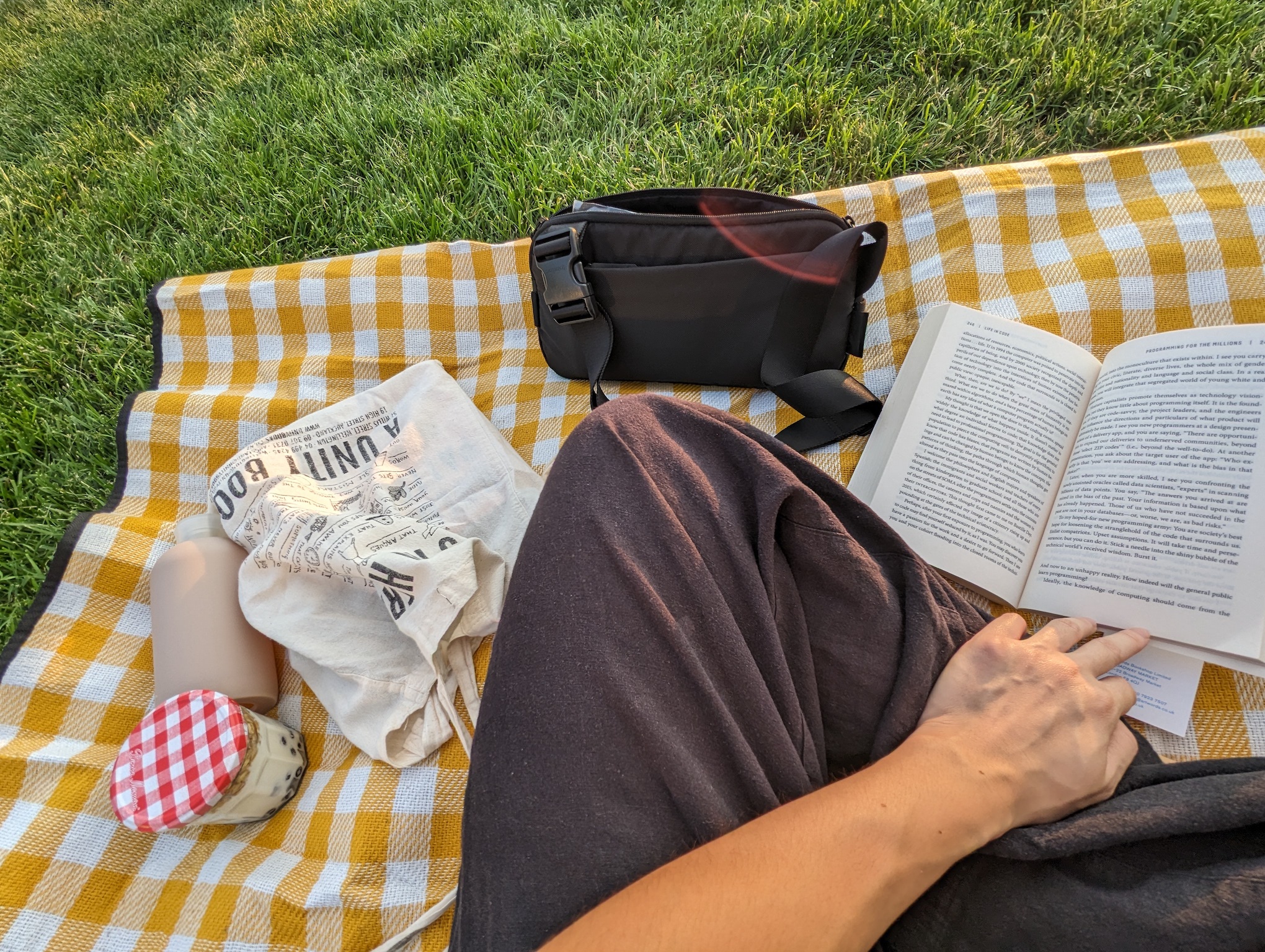Beginning again.
by Serena Chen


Hi! It’s been a while.
A lot has happened since last I wrote, and I’m sure a lot has happened in your life, too. The past three years were rough… and y’know what, that’s all I’ll say about that. I hope you’re in a better place. Or that you’re heading in a good direction. Or… whatever life is like, I hope that at least, right now, you are giving yourself a moment to breathe.
I am writing to you from a grand, modern-gothic reading room in the Jefferson Public Library in New York City. Built in 1883, this structure was first constructed as a courthouse. When I walked in, I thought I was in an old church. Intricate stained glass patterns fill arched stone windows. A half-round, half-rectangular clocktower erupts from the red brick beside the main hall, Disney-like. Apparently the architect, English-born Frederick Clarke Withers, thought he couldn’t design the clocktower out of looking like a church, so chose to lean into the church-y vibes. But instead of Biblical tropes, he filled the building with secular decorations. A scene from The Merchant of Venice etched in stone, sits regal and pious above ornate wooden doors. It’s all rather confusing. In the reading room, the walls have been plastered with these 2000s-esque prints of stock handwriting in library books, and the ceiling has been painted a modern depression-white. The result is kind of an awkward-looking building, if I’m honest, but still grand in its own way. It’s good enough for the students procrastinating on their essays beside me, and it’s good enough for me writing this letter to you.
I’m writing to you from New York City because… I live here now! I have always wanted to live in this chaos city, and figured if I didn’t take a chance now, it’ll never happen. So here I am, baby! I’m looking forward to being enemies with the local rats, inexplicably spending $100 every time I leave my apartment, and getting unreasonably angry with the existence of cars. Ehem. I’m wawkin’ ‘ere!!
The other day I came across this cheesy quote, attributed to Confucius:
We have two lives; the second begins when we realise we only have one.
As I’m coming up to my 31st birthday, after moving across yet another ocean and making another attempt to Start Again, this quote stuck with me. I’ve never been someone who has been good at thinking about my long-term wants and needs, and as I venture into this new topic area I find myself blundering through stuff that should be easy, like a baby discovering their limbs for the first time. What makes me happy? What do I want out of life? Are these things really what I want, or am I just told to want these things? How do I tell the difference?
I do think there is something magical about arbitrary markers in time — a birthday, a new city, a new year, or just a changing of the seasons. These give us reminders to zoom out of the day-to-day, to come back up for air. They can also serve as reset points, where we can distance ourselves from the past, and begin again with a fresh slate. I think society tends to have an underlying assumption in the narratives we tell each other: that restarting is a kind of failure. That everything we do must be to work towards a singular end state. But that’s the thing no one tells you. You can begin again, as many times as you need.
So as I’m beginning again, I wanted to summarise three big things that I’ve learned that I want to take with me, and some things that I want to leave behind. This post is more for me than it is for you (sorry), but I hope me reasoning through the storm of therapeutic concepts, books, and self-reflections is also helpful for others.
Feelings are important, actually
For most of my life I liked to think of myself as a highly rational, logical and scientifically-minded person, who can rise above all the messiness of human emotion. What a small-minded, feeble perspective that was.
Human emotion is not a nuisance to be dealt with. It’s a rich, information-dense, bodily signal. And though they are not always a direct reflection of external reality, it’s worth learning how to parse what these signals mean. Regardless, they exist, and they probably affect all of us more than we care to admit.
Anyways, as a feelings noob, here are some things I’ve found helpful in this department:
Separate feelings
Emotions are useful signals, but are confusing because we shouldn’t parse all of them in the same way. How I like to think of it is there are two main types of feelings: first-order, and second-order.
First-order feelings are direct reactions: I eat → I feel satisfied. I complete a difficult task → I feel accomplished. A friend smiles at me → I feel happy. Or, it’s raining → I feel pensive. Someone yelled at me → I feel small.
These feelings tell us about our needs: are they being met? Are they not being met?
Second-order feelings involve an extra step — an assumption about an external actor. This person didn’t respond to my message for a long time (evident) → they were annoyed by what I said (assumptive) → I feel ashamed. Or, I wasn’t chosen for this thing (evident) → no one thinks what I do is valuable (assumptive) → I feel worthless. Note that these feelings always include some assumption we make about other people and their thoughts — thoughts that are not always true.
It’s important to recognise when we’re experiencing a second-order feeling, because assumptions are just that: assumptions. They are not based in evidence, and are often based instead on our own insecurities and fears, which means they tend to be negative. Realising this means we can seek to correct these assumptions in the moment, by simply asking people for more information. Like, “I’m worried I was being rude when I said that, are we ok?”
This doesn’t mean that our second-order feelings are not useful. If we dig deeper, they reveal our deep anxieties. And by shining a light on these hard things means we can start to slowly work through them. For example, I have deep anxieties that I am not useful to others, that I am unwanted, that I am a burden. This is probably a fear that will stay with me for life, but at least now I can slowly unpack how this affects my emotional responses, and not immediately feel horrible when I’ve made one of these assumptions based on my internal fears.
This “separate feelings from facts” is just one concept in a whole range of common cognitive distortions that we can have. Reading about these and reminding myself regularly has been helpful to correct some of the unhelpful thought spirals I sometimes fall into.
Find corrective experiences
There’s only so much we can do by ourselves, and I find that my cognitive distortions get worse the less I’m around other people. It’s also worse in low-bandwidth communications (like text), or with people I don’t know so well. So instead of trying to figure all this out alone like *math equations floating around head; what is the volume of a cone?*, I’ve realised that it’s important to go outside, see other humans and communicate with them.
It’s also about finding the right situations and experiences to put yourself in. Lately I’ve noticed an interesting contradiction: there are some experiences that are bad but feel fine, because they reinforce our own negative self-perception. For example, I’m totally okay when someone calls me lazy or childish, because that’s a narrative I believe about myself, even if I struggle to find actual evidence of it. Conversely, there are experiences that are good but feel awkward, like when someone compliments me, or when I do something fun for myself that isn’t some kind of self-improvement project.
Weird as it sounds, it is deeply uncomfortable to move away from these bad experiences and embrace good experiences, because they go against the negative self-narratives I have. If I have to accept that I’m not lazy, that I’m actually trying extremely hard at everything, all the time, then that means I have to deal with the underlying problems that are there (like going to see a mental health professional?! Scary. I’m Chinese — mental health issues do not exist for us, thanks).
Work to form secure attachments
I’m not going to get into attachment theory, but I will highly recommend reading Attached. Look, here’s even the audiobook for free, if you don’t feel like reading. Put it on for 15 minutes while you clean your house today. Just trust me on this one. This book has been recommended to me multiple times in the past decade, but I put off reading it because frankly, it seemed too feely-feely (lol). Yet truly it has been one of the most helpful reads as I navigated my breakup last year (that and Lorde’s sophomore album Liability, which I didn’t understand in 2017 but I do now).
What I will mention here is this: attachment theory is often applied to romantic, monogamous partnerships, since that’s often the closest relationship for a lot of people. But I think it’s also worth applying to all of our relationships: family, friendships, colleagues, and passing acquaintances alike. Throughout my life, secure relationships have been pivotal in enabling me to be the best version of who I can be, and are deeply fulfilling in themselves. So after the pandemic period, this is something that’s super front-of-mind for me.
Hmm. This letter has gotten way longer than I anticipated. It’s high-summer in New York City, with temperatures reaching a sticky sticky 32℃. I have some over-priced grocery shopping to do, so I will bid you farewell. It’s nice to be writing again, and if you’ve made it this far, it’s nice to have you here with me :)
Much love, as always,
—Serena